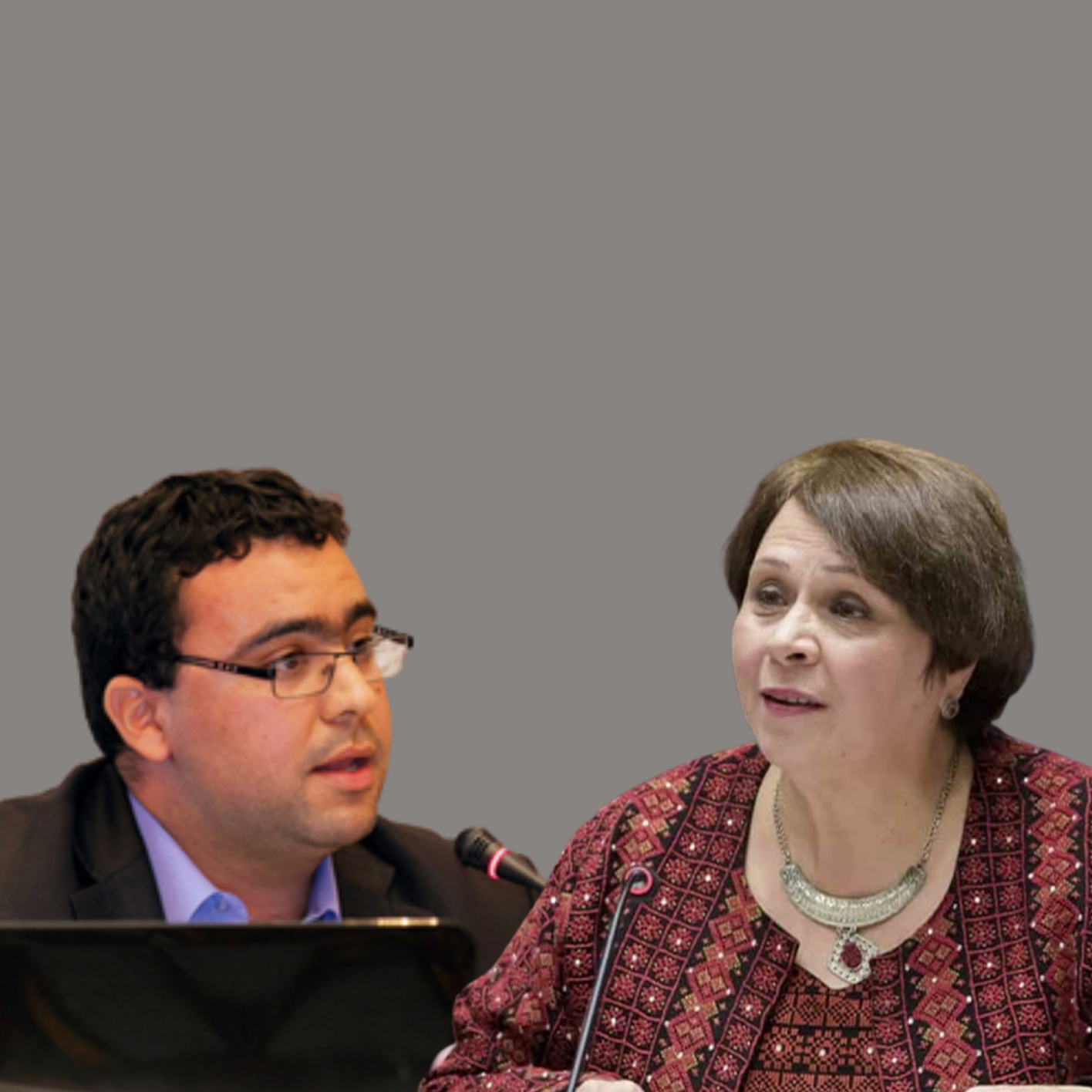
Introduction:
Researcher in the high-tech sector in Israel, Arees Bishara, described the Silicon Valley project Israeli authorities are planning for the Wadi Joz industrial zone in East Jerusalem, as being part of the ‘modern Israelization” of Jerusalemites. She warned that if this project comes to fruition, it would undermine the economic, social and political status of Palestinians in Jerusalem.
Bishara, a woman’s activist and PhD student of sociology, spoke to “Hosted by MIFTAH”, calling on Palestinians to take advantage of ‘young minds’ in the field of high-tech, saying there are hundreds of brilliant young Palestinians in the West Bank and Gaza, including in East Jerusalem, who work on contract in Israel. There are others, she said, who were given entry visas into Israel and are employed by Israeli high-tech companies. Bishara recommended the formation of a Palestinian national strategy plan to elevate this sector and employ it in the service of the Palestinian global narrative, citing the experience of Sheikh Jarrah and Silwan in the last two years as an example.
Dangerous economic, social and political repercussions
Bishara believes this project is directly connected to the takeover of Jerusalemite properties, saying the objective is to take over land on which Palestinian industrial and economic facilities are built. Today, there are over 200 of these facilities, including auto-shops, which employ Palestinian workers, who will lose their livelihood once this project is realized.
However, the repercussions on the bigger picture, she maintains, is that the project will undermine and rattle the economic, social and political status of Jerusalemites in East Jerusalem, contrary to claims by the Israeli Jerusalem municipality that the project will provide jobs for them.
Recruiting Palestinian brainpower
Bishara points to other goals of the project, particularly recruiting talented Palestinians in the high-tech industry. “When we talk about Palestinians in the field of Israeli high-tech, we are talking about a specific narrative Israel has nationalized over the past few years, after it joined the Organization for Economic Cooperation and Development [COECD] and realized its need for skilled laborers. This involves a narrative of “recruitment or pluralism”, which is an American or western narrative. Israel is trying to adopt it in order to convince the Western world in particular that it is open to a model of pluralism, in both the ’48 territories and the ’67 territories including East Jerusalem, for the sake of economic peace and elevating the economic status of the Palestinians.”
Modern Israelization of Jerusalemites
Bishara describes Israel’s approach towards the Palestinians in this regard as a process of modern Israelization in East Jerusalem, which does not take any consideration to their status as residents and not citizens. What’s more, the Israeli labor market does not recognize diplomas from Jerusalemite institutes, which has resulted in a massive influx of students to Israeli academies such as Hebrew University and Hadassah College.
Meanwhile, the number of Jerusalemites working in high-tech companies in the West Bank and inside the Green Line was estimated at 1,000, while most Jerusalemites working in the Israeli high-tech sector work in global rather than local companies. Still, they suffer from racism on the job, especially when the company branches are in Jerusalem, which already have a very low employment rate for Palestinians, Bishara notes.
Palestinian initiatives
Bishara points to independent Palestinian initiatives such as tech incubators, which train Jerusalemites in the Palestinian ecosystem, such as the Jerusalem High-Tech Foundry. This institute trains Jerusalemites to become involved in the Palestinian high-tech market and connects them with high-tech companies in the West Bank and the Arab world. “We are finally seeing investments by major conglomerates such as Google, which play an important role in the technology sector. Recently, a financial grant of $10 million was secured as a donation, the first of its kind, which targets app developers, graduates and entrepreneurs in the technology field in East Jerusalem and the West Bank,” she adds.
Occupation obstacles
Still says Bishara, Israel’s Jerusalem municipality continues to place obstacles in the path of independent Palestinian tech initiatives, basically because it goes against the grain of its own logic of pluralism and the narrative of integration in the Israeli high-tech market. The narrative of pluralism, she explains, is only applicable to the Israeli tech market and under Israeli conditions. “That is why we cannot claim that the integration process or the model of pluralism is a success or that there are no hidden agendas of ‘modern Israelization’ behind it. Talk is one thing but implementation is another.”
Palestinian High-Tech
Bishara explains that the Palestinian high-tech sector started to rise in years after 2000 and included several important components: government associations, incubators, start-up companies, donators, investors and tech accelerators, all working in the Information and Communications [ICT] field. At the time, the percentage of employees was 3%, with a GNP of 8% and annual profits of around $500 million. She adds that 50% of high-tech companies in the West Bank and Gaza have partners outside the Palestinian territories, including: The Palestinian Investment Promotion Agency, Gaza Sky Geeks, Rawabi Hub and other startups and companies that play a major role in the Palestinian ecosystem. In addition, investment funds such as “Ibtikar”, which supports Palestinian and Arab startups and government institutions, play a major role as well. Between the Palestinian and Israeli ecosystem, there are three operation models: outsourcing (or contracting), training and direct employment.
Overlapping in Palestinian-Israeli economic relations Bishara points to several overlapping characteristics in Palestinian-Israeli economic relations within the technology sector, including: domination, integration, normalization and liberation. Domination, in this context, is in regards to the unequal power relations and the subordination of the Palestinian economy within a colonialist hierarchical sequence. Integration and normalization indicate to the diverse and complex relations between Palestinians and Israelis. That is, some Palestinians oppose partnership and normalization while others see them as an opportunity to gain expertise for the liberation project and economic independence. There are yet other voices that oppose Palestinian engineers working in Israel because it leads to Palestinian “brain drain”.
Bishara says Israel’s air, land and sea in addition to its digital and economic occupation is the main obstacle to Palestinian high-tech workers. This, she maintains, creates people with degrees but with no experience and very little job opportunities in a narrow labor market that depends on donors and not on investors. This, she added, is not to mention the low salaries they earn in the few Palestinian high-tech companies in existence.
Israeli High-Tech: colonialist military spaces
Bishara explains that the Israeli high-tech sector works in colonialist military spaces that defy every concept of pluralism and partnership. This was further exposed by the Israeli spyware scandal, which revealed that Israeli spy operations also included high-tech companies, namely Apple and Facebook. Both companies then filed lawsuits against the spyware company. The scandal also raised fears among Jerusalemites that such high-tech technology and surveillance in East Jerusalem and the West Bank would be used by Israeli security companies to further oppress the Palestinians and shrink their space even more to freely move and live.
The Wadi Joz Silicon Valley project and normalization with the Arab world
What is the relationship between this project and the recent normalized relations between Israel and some Arab counties? Bishara answers: ‘Right now, the objective in Wadi Joz, for example, is not only to establish a high-tech project, but also to link occupied East Jerusalem with West Jerusalem through establishing economic projects in the so-called Israeli ‘capital’. Hence, these normalization deals are exactly what Israel wants – for the UAE and Gulf countries in general to invest in East Jerusalem and in these tech projects in particular, so their governments can convince the international community that Jerusalem is the eternal capital of Israel. What happened, though, was that the UAE did not heed Israel’s call, fearing investment in an area with such high economic and political risk. This is because Israeli high-tech is relatively less developed in East and West Jerusalem than it is in inside the ’48 territories. Furthermore, the UAE has no interest in taking such risks in Jerusalem, which is still disputed territory. This is especially true of East Jerusalem, which is occupied according to international law. Instead, the UAE invested in startup Israeli companies that guarantee a profit for it without economic or political risks.
Position of international high-tech companies
Bishara explains international high-tech companies that own major shares in facilities and branches inside the Green Line did not want to establish companies in East Jerusalem on disputed land and especially not in Wadi Joz. “These international companies worry about their reputation in the global community. For example, companies such as Facebook, Google and Microsoft are not interested in waging this battle, so the dreams and aspirations of the Israeli government and Jerusalem municipality have been thwarted for now. These companies have been closely watching recent events in Sheikh Jarrah, Silwan and other Jerusalem neighborhoods in the media, including the May, 2021 uprising, which forced them to rethink their actions in Jerusalem and even inside the Green Line. In some cases, deals were cancelled and others postponed until the political situation settles.
Economic neoliberal intersectionality
Bishara says there has been a relationship of economic neoliberal intersectionality between the Israeli government and the PA for years. That is, the Palestinians in the West Bank and Gaza Strip work in contracting for companies inside the Green Line, which are considered global, or they work in Israeli-sponsored local startups. Hence, this is not a new approach. If we look at the archives of deals signed between companies in Ramallah and Rawabi and Israeli companies, we find that this relationship is alive and well.
Employing high-tech in the Palestinian narrative and discourse
Bishara also pointed to current liberation and unification initiatives, whose objective is to convey a clearer and more accurate picture of what is going on in East Jerusalem. She said these youth initiatives work earnestly to convey the true picture of the Palestinian movement in confronting oppression, mainly through social media. Even if these are preliminary initiatives, they are key to building an internal economic liberation project, which would serve as a mirror to the world. There are also digital platforms no less important than these initiatives from which Palestinians can win over the sympathies of other peoples, in addition to the role individuals play, especially those working in Israeli companies. “People are not statues, they are humans who can take action, listen and see and have the capability to change the reality of their surroundings and make Israelis see that they have the capacity and ability to advance and develop themselves and their community irrespective of Judaization projects around them,” Bishara says.
A national strategy plan to revive Palestinian high-tech
In this regard, Bishara maintains that the first thing needed to revive and elevate the Palestinian high-tech sector is to establish a clear and unified project that serves Palestinian economic interests. “I don’t know if this should be under the PA’s auspices or not,” Bishara remarks. “But to be honest, I am not putting my bets on the PA right now, but on individuals, on competencies, universities, schools and already existing companies. Through these, we can build a network or a tech incubator that includes all private companies and associations. We must also work on a joint strategic plan that includes all Palestinians inside the ’48 territories, the West Bank, Gaza and the Diaspora. Public opinion and global companies, individuals and international governments that invest in the Palestinian economy will help formulate this plan, because involving them will offer an alternative, a new proposal and a unified economy.”







